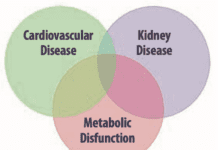Virtually every tissue in the body has receptors for vitamin D. This fact led to the hypothesis that maintaining adequate vitamin D levels might be helpful for multiple health conditions. Screening to check blood levels of vitamin D has become common and an estimated one third of U.S. adults 60 years of age or older take vitamin D supplements (not even counting multivitamins or other compounds containing vitamin D).
A large, well-designed, randomized controlled trial called VITAL (Vitamin D and Omega-3 Trial) has produced results that may change all that. VITAL randomly assigned nearly 26,000 U.S. adults 50 years of age and older to one of four groups: vitamin D3 (2,000 International Units per day) plus omega-3 fatty acids (1 gram per day); vitamin D3 plus placebo; omega-3 fatty acids plus placebo, or double placebo. The results showed that vitamin D supplementation did not prevent cancer, cardiovascular disease, or falls, improve cognitive function, reduce atrial fibrillation, change body composition, reduce migraine frequency, improve stroke outcomes, decrease age-related macular degeneration, or reduce knee pain.
Now, another analysis from the study reports that, contrary to expectations, supplementation with 2,000 IU of vitamin D3 also did not reduce the risk of fractures during the more than five-year follow-up period, whether or not calcium supplements were used.
Importantly, the results of the VITAL study found that even people considered vitamin D deficient (blood levels less than 20 nanograms per milliliter) did not benefit from taking vitamin D supplements.
These important findings are consistent with the latest recommendations from the U.S. Preventive Services Task Force, which no longer recommend vitamin D or calcium supplements for the general population.
























